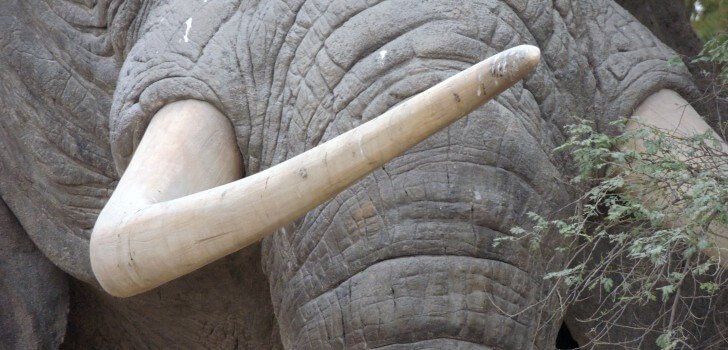Although the magnificent ivory of elephant tusks seems very smooth to the naked eye, it is actually quite porous when viewed under a microscope. These microscopic pores are very good at soaking up fingerprints, thereby obscuring the very evidence that has been used for decades in catching criminals: fingerprints. Without fingerprints, many crimes go unsolved – including illegal poaching of elephants. Things may now change, however.
According to recent findings published in the journal, Science & Justice, two newly developed powdery substances have the ability to reveal fingerprints left on elephant tusks for up to about four weeks after coming into contact with the material. Although the powders have been commercially available for many years, they were until recently untested on ivory.
In 2014 alone, it is estimated that 33,000 elephants were illegally poached and killed for their beautiful tusks. In central Africa, 64% of all elephants have perished over the past ten years due to poachers. If something is not done to stem the killings, the majestic creatures may go extinct in some African nations within the next ten years.
The two newer powders used for fingerprint identification contain grains that are much smaller than those of traditional powders. Since the grain particles are so tiny, they are better suited to stick to minute traces of fingerprint. The powder is composed of silica, iron and carbon, which allows the grains to latch onto both oil-based and water-based particles left by fingerprints.
While traditional powders can identify fingerprints left on ivory for about one to two days, the new compounds allow researchers to identify almost all of the marks left on ivory for up to seven days, and are even recoverable at 28 days.
The new powders are most useful for border police and park rangers who seize ivory while in transit or right in the field.
A forensic science professor at Kings College London, Leon Barron, has created a field kit that costs less than $150 each and is the size of a notebook. The rangers and authorities can carry these with them in order to examine ivory for markings and to lift the fingerprints for evidence. Barron states that, “We want to engage now and get this rolled out.”
Stay Connected